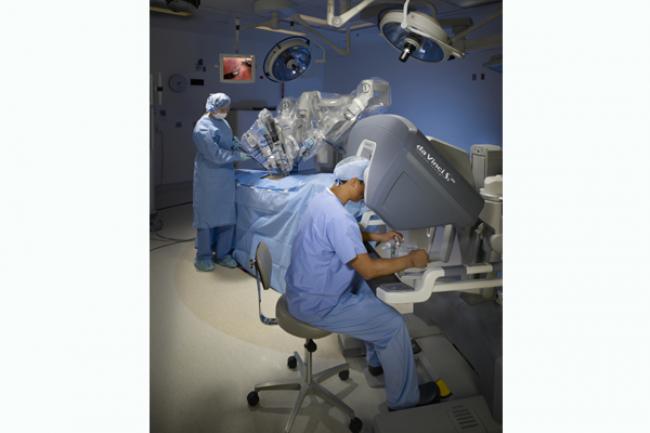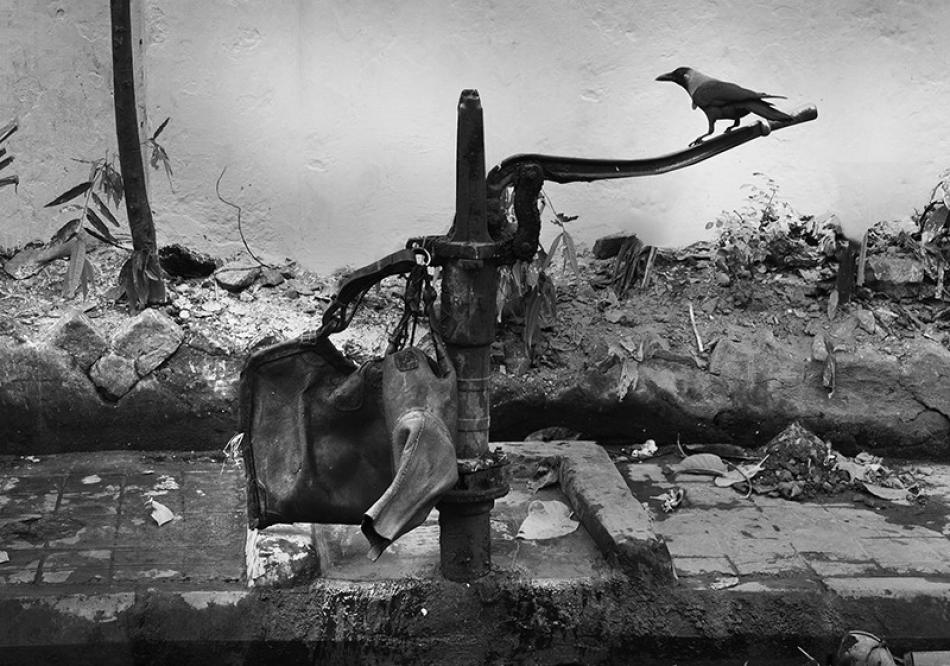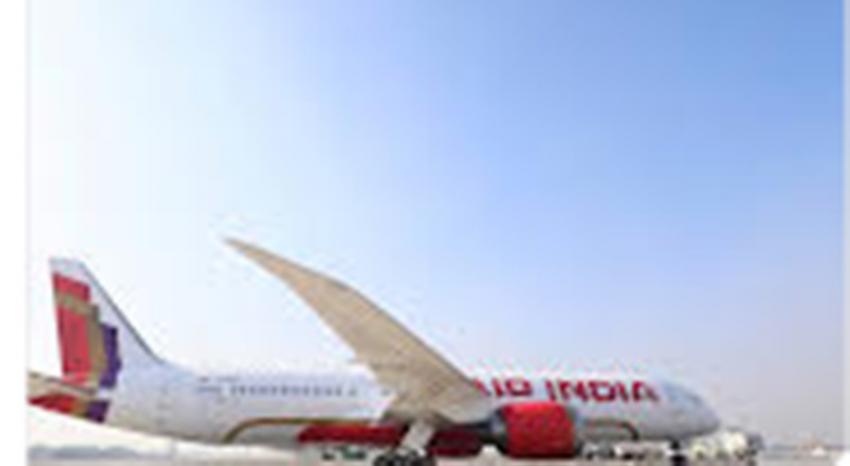29 Mar 2016, 05:44 am

Obesity is one of the much dreaded lifestyle problem worldwide.
According to the World Health Organization, almost a quarter of Indian children are overweight and at the risk of contracting obesity-related diseases later in life.
But losing weight is not easy for most people.
For adults, those who want to lose 10-20 kgs, there are several options such as various exercises, yoga, detox institutions and gymnasiums.
But when a person wants to lose 40-100 kgs, these methods do not produce results.
Moreover, for many suffering from obesity, the first line of treatment - exercise and eating right does not work – because with excess weight, comes limited mobility, which means exercising or work-out is not an option.
“We suggest bariatric surgery to those with morbid obesity,” says Dr Arun Prasad, a Robotic surgeon with Delhi’s Apollo Hospital.
Bariatric surgery reduces the size of the stomach and intestines.
Alka (name changed) who was 158 kg, suffered from diabetes, high blood pressure and knee-pain, could not walk from one room to another and found it difficult to get up from the bed, lost 50 kg in nine months after her gastric bypass.
While bariatric surgery has been around for a few decades, the advent of robotic bariatric surgery has made it simpler and more beneficial.
The surgery can be carried out with the assistance of a Surgical Robot, making the procedure simpler and safer.
Dr Arun Prasad, who has performed over 1,000 such surgeries said, “The Surgical Robot enables us to perform these surgeries with lower risk to the patient, lesser pain and a much shorter hospital stay.”
Over the past 12 years Dr Prasad was performing bariatric surgeries through laparoscopy; five years ago he started using the robotics technology.
“For a 250-kg patient, performing a normal gastric bypass surgery is very, very difficult. Lifting the abdominal wall can be tiring for the surgeon, which can affect the results. In robotic surgery, the robot does the lifting while surgeon does the stapling and stitching,” explained Dr Prasad.
According to experts, contrary to popular perception, there is no weakness after the surgery. Most patients can go back their daily routine and work within 2-3 weeks of the surgery.
“We call ourselves fat fighters,” says Dr Parveen Bhatia, chairman, Institute of Minimal Access Metabolic and Bariatric Surgery, Institute of Robotic Surgery (IRS), Sir Ganga Ram Hospital, New Delhi.
Bhatia rues at the growing obesity in India. “One quarter of what you eat keeps you alive, the other three quarters of what you eat keeps doctors alive,” he says.
“I did not feel weak after the surgery. In fact, I opted for robotic surgery as the level of accuracy is higher and there little blood loss,” said Ramani (name changed), a young girl who underwent gastric bypass surgery last year.
Raminder Kumar (name changed) said he drove back home two days after his robotic mini-gastric bypass surgery. This may not have been possible if the same procedure were done as an open surgery or even through laparoscopy say doctors.
The robot has four arms with different equipment that can reach organs and areas where human fingers can’t.
“The robotic arms of the daVinci Surgical System operate in 360-degree mode and can reach deep inside, to difficult-to-access areas, especially stomach blood vessels. The suturing becomes accurate since normal and straight equipment can only reach to limited areas. The robot has ‘wristed’ arm controlled by the surgeon, allowing movements that simply aren’t possible with traditional laparoscopic tools,” added Dr T Lakshmikanth, Senior Bariatric and Laparoscopic Surgeon at KIMS Hospitals, Hyderabad.
The advantages of robotic surgery for patients are multifold.
First, patients experience reduced pain and discomfort as incisions are very small compared to open surgery in which long incisions are needed to cut open abdominal wall or any other area. In robotic surgery, incisions are tiny, which greatly reduces risk of infections and minimizes blood loss and need for transfusion. Such incisions leave minimum scarring.
The biggest benefit for patients undergoing robotic surgery is shorter hospital stay. The recovery time is much faster and patients can resume normal activity much sooner.
A surgical robot has powerful cameras that magnify the internal organs multi-fold, providing greater precision during procedures. The 3-D view is more accurate and clear. The surgeon is in full control of the robotic arms, which he manoeuvres from the console.
In bariatric surgery, the robotic arms lift the heavy, thick abdominal wall. This enables the surgeon in two ways – the forehand and backhand movement of the robot forms perfect sutures and it can be done without feeling tired.
“Since the time taken is less, it reduces anaesthesia-related risks in obese patients,” said Prasad.
According to Dr Prasad, patients need to evaluate the technology before rejecting it out of fear. “We have this technology; we can either use it for our advantage or condemn it and ignore it. I think it is here to stay,” says Prasad.
In India, 30 hospitals are using this technology.
But as any doctor will warn, while the initial weight loss is euphoric, the post-surgery lifestyle has to change; otherwise surgery will have limited affect. There are some cases where patients have gained weight and needed a more advanced surgery.
A healthy regime has to be followed sincerely. If patients do not focus on having an active life and go for regular exercise, it will be a downhill journey.
Patients should exercise for half an hour to one hour every day, recommends Prasad.
Vattikuti Foundation is committed to train highly competent surgeons and will continue to play its role of motivating young surgeons. The Foundation works with the hospitals to make robotic surgery affordable to the masses.
- ‘This Union budget is about building capacity, not chasing short-term consumption’
- AI will replace surgeons, coders — and billions of jobs, warns Sraddhalu Ranade at MCHD-SKC Memorial Lecture
- Religion without servility: Journalist Anshul Chaturvedi on why Vivekananda speaks to believers and atheists alike
- Culturist Sundeep Bhutoria unveils anthology When Gods Don't Matter at Jaipur LitFest 2026
- Kolkata CP urges elderly to stay alert against digital scams at ‘Pronam’ interaction
- Sona Incubations, Salem picks 17 startups for Rs 11 Mn DST investment, grant
- Visva-Bharati University unveils a transformational roadmap under Vice-Chancellor Dr. Probir Kumar Ghosh
- Sona College of Technology hosts Think Salem 2025: To spur startup opportunity from Tier-2 Cities
- ACM India unveils National AI Olympiad 2026 to spot school talent for global AI stage
- Reject Macaulayan education, reclaim Indian values: H M Bangur’s big World Hindu Economic Forum pitch
Gurgaon : Air India, India’s leading global airline, has unveiled a completely refreshed beverage collection, one that brings together some of the world’s most celebrated wines and spirits at 35,000 feet on international routes.
Indian airline major Air India today announced a significant enhancement to its popular Mumbai-Frankfurt route, with the deployment of its newly delivered, first line-fit (or made-for-Air India)
Saudia, the national flag carrier of Saudi Arabia, and Air India, India’s leading global airline, have signed a codeshare agreement that will take effect in February.





